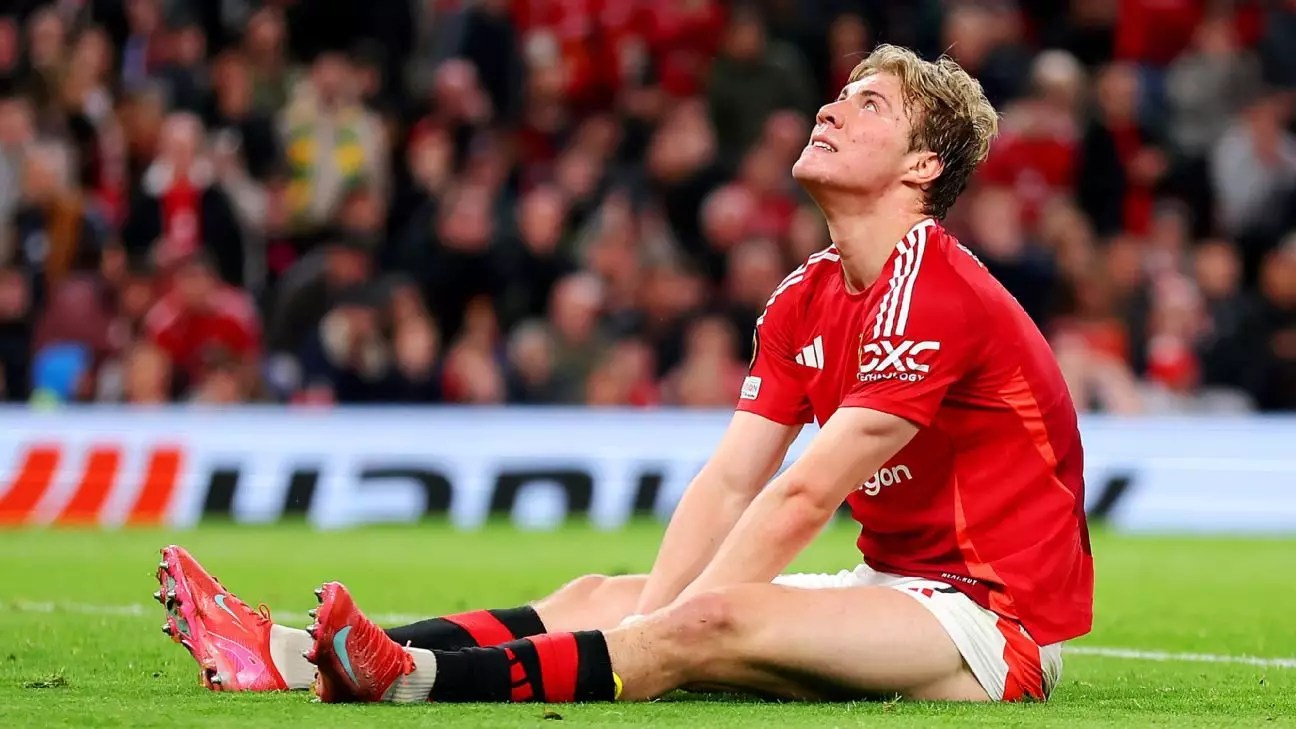The world of football is perpetually in flux, where clubs are constantly recalibrating their rosters to stay competitive and adapt to evolving tactical demands. This transfer window exemplifies this relentless pursuit of excellence, as seasoned clubs seek to balance experience with youthful exuberance, while emerging talents seek strategic placements to maximize their growth. The recent interest in players like Rasmus Højlund and Harvey Elliott highlights this delicate dance between legacy and potential, underscoring how clubs are attempting to craft balanced squads that can both contend now and dominate in the future.
Particularly intriguing is Manchester United’s apparent readiness to part ways with Højlund, a player who, despite a modest goal tally, possesses qualities that can be translated into a long-term asset with the right system. Their near €85 million bid for RB Leipzig’s Benjamin Sesko signals their intent to inject proven goal-scoring potential into their frontline, realizing that elite strikers are their missing piece in reclaiming top European honors. Meanwhile, AC Milan’s interest in Højlund reflects a broader European strategy—pairing rising stars with experienced front-line leaders to bolster attack dynamics and ensure they remain competitive on multiple fronts.
This shifting landscape envisages a future where clubs are not solely fixated on current form but are also grooming for sustained dominance. By acquiring young players like Sesko and Højlund, teams are investing in not only immediate impact but also long-term squad stability. The intersection of seasoned veterans and burgeoning talent epitomizes a philosophy that values strategic planning over short-term results, ensuring the beautiful game continues to evolve dynamically.
The Tale of Talent and Opportunity: Migration in Football’s New Era
The movement of players like Harvey Elliott and Yunus Musah encapsulates the broader narratives of ambition, playtime, and legacy. Elliott, a talented young midfielder who grew up supporting Liverpool, is pondering a move away from Anfield in search of regular first-team opportunities. His current situation is emblematic of a wider phenomenon: promising young players often face a choice—remain loyal to their clubs and accept limited chances, or seek a new environment where their talents can flourish more freely. Clubs need to learn how to nurture these players, and players, in turn, must weigh their aspirations against institutional loyalty.
Leeds’ Under-21 international Tyler Morton’s transfer to Lyon for a fee of £15 million accentuates this trend further. His move signifies an increasing willingness of young English talent to explore opportunities abroad, seeking fresh challenges that can accelerate their development. For clubs, it’s a reminder that player development isn’t confined within borders and that international mobility often benefits all parties involved—players gain experience, clubs secure justified investments, and leagues diversify their competitive landscapes.
Moreover, the interest in Yunus Musah by Napoli highlights a paradigm shift where top European clubs are aggressively targeting versatile midfielders from lesser-known leagues to bolster their options. Antonio Conte’s pursuit of Musah underscores how tacticians highly value adaptability and tactical intelligence, qualities Musah displayed during his time at Milan. His acquisition by Napoli could serve as both a strategic reinforcement and an example for evolving clubs that see value in investing early in talent from international markets.
This ongoing player migration emphasizes a philosophy of strategic agility. Young talent now views transfers less as lateral moves and more as defining steps toward personal growth and legacy-building. For clubs, it’s about creating an environment where such talents can reach their full potential, transforming their careers from promising prospects into top-tier influencers.
The Larger Economic and Tactical Chessboard
Financial considerations continue to catalyze some of the most high-stakes negotiations this summer. Clubs are balancing the allure of significant fees against the risk of overinvestment, especially for players with fluctuating form or limited impact. The proposed €70 million move of Xavi Simons to Chelsea, and the £80 million valuation for Nicolas Jackson, underscore how big clubs are willing to bet big on specific talents, viewing them as lynchpins in their tactical frameworks.
Simultaneously, clubs like Liverpool and West Ham demonstrate prudent management, seeking to offload or acquire players with clear strategic roles. For instance, Liverpool’s potential €40 million bid for Giovanni Leoni highlights their determination to bolster defensive options, possibly as a contingency against uncertainties around their key defenders, such as the ongoing discussions about Al Hilal’s reported deal for Darwin Nunez.
This complex financial chess game is further complicated by the varying priorities of clubs across leagues. Premier League clubs are showing a preference for maintaining dominance and building resilience, while continental giants like Real Madrid and Napoli focus on balancing immediate needs with long-term squad sustainability.
In essence, the current transfer market exemplifies a high-stakes scenario where club philosophies, financial power, and tactical needs intersect, shaping the narrative of football’s evolution. Each move is a calculated risk, aimed at constructing not just a team, but a legacy—one that could define the next decade of competitions.
—
Note: This article critiques and reimagines the original information, emphasizing the broader strategic implications of current transfer trends, highlighting how clubs’ decisions shape both immediate outcomes and long-term football evolution.


Leave a Reply